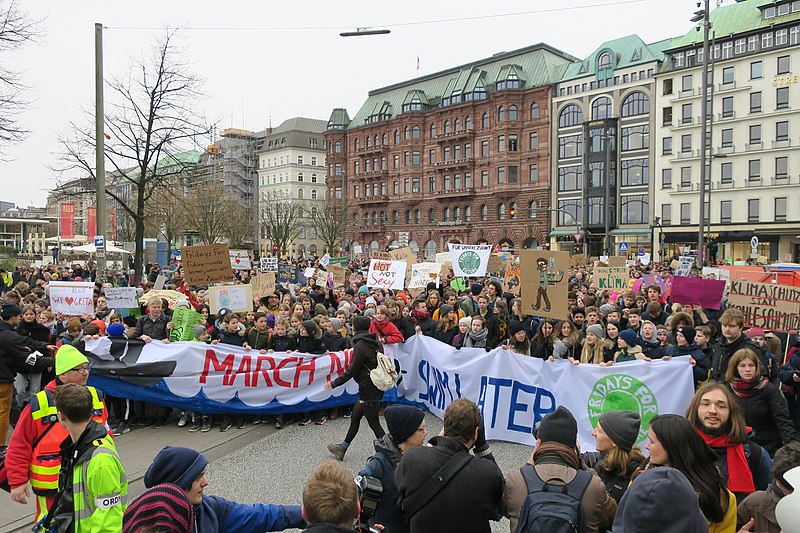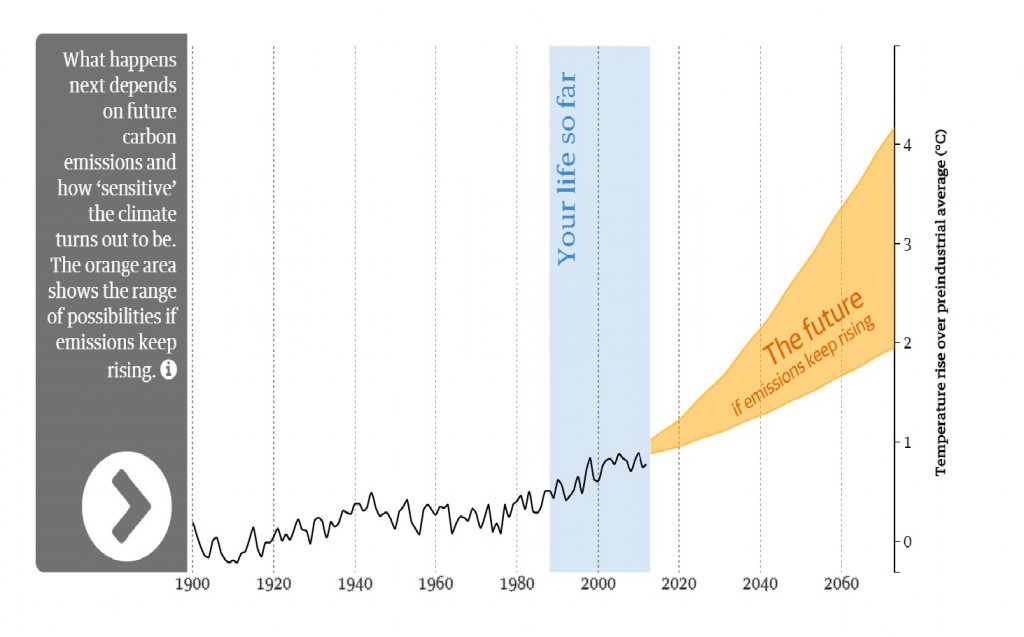Fenja De Silva-Schmidt

Fenja De Silva-Schmidt is coordinating the science communication project at the Hamburg Research Academy. Previously, she worked as a research assistant and received her PhD from the chair of Prof. Brüggemann in Hamburg. During Paris’ climate conference, she coordinated the “Down to Earth” study about the audience’s perceptions of news from the conference. Aside from […]
Do people learn about climate change?

How to mobilize citizens, politicians and companies for climate action? Often, knowledge about climate change – or more precisely, a lack of knowledge – is seen as a crucial factor. Basic facts on climate change and climate politics are indeed unknown to a large share of the population. However, ‘educating the public’ is not as […]
“Yes, but”-narrative in the German climate debate

As Fenja and Michael earlier commented, the “Fridays for Future” movement is getting more and more media coverage in Germany. The climate strike is triggering many positive, but also nasty reactions, e.g. grown-ups insulting children in commenting sections in a manner you could easily find on any schoolyard [1]. However, in the same breath they […]
Sustainable Lives: Consumption as Politics and Lifestyle

The Sustainable Lives Project is a multidisciplinary project that investigates the drivers of consumption choices, i.e. food choices, and the impact of changing discourses, norms and attitudes around food on actual patterns of food consumption. We ask: What drives food choices and how are they influenced by ideas and discourses related to more sustainable lifestyles? […]
New paper published: From “Knowledge Brokers” to Opinion Makers: How Physical Presence Affected Scientists’ Twitter Use During the COP21 Climate Change Conference
The paper “From “Knowledge Brokers” to Opinion Makers: How Physical Presence Affected Scientists’ Twitter Use During the COP21 Climate Change Conference” was published in the International Journal of Communication. This study investigates the 2015 United Nations Climate Change Conference summit and examines scientists’ social media use by analyzing “digital traces” that scientists left on social […]
New paper published in nature climate change
The paper `The appeasement effect of a United Nations climate summit on the German public´ was published in the current issue of the journal nature climate change. It presents first findings from the research project `Down to Earth´, directed by Prof. Dr. Michael Brüggemann and funded by the cluster of Excellence `CliSAP´.
Down to Earth – Publications
Mahl, Daniela, Brüggemann, Michael, Guenther, Lars, & De Silva-Schmidt, Fenja (2020). Public opinion at a tipping point: Germany’s path to engaging with climate change. Down to Earth Working Paper, March 2020. DOI: 10.25592/uhhfdm.851 De Silva-Schmidt, Fenja & Brüggemann, Michael (2019). Klimapolitik in den Medien – Das Publikum erwartet mehr. Befunde einer Befragung zu den UN-Klimagipfeln […]
How data journalism is impacting the climate change debate

Climate conferences serve multiple purposes. Besides being important political events, they are also global media spectacles which push the topic of climate change to the top of political, scientific and public agendas. Scientific data is always at the heart of the way climate change is discussed. Whether it be weather records, measurement of greenhouse gasses in […]
Our Bloggers: Who is who of contributors
Michael Brüggemann is Professor of Communication Research, Climate and Science Communication at the University of Hamburg. He is also the Principal Investigator at the interdisciplinary Cluster of Excellence „Climate, Climatic Change, and Society“ (CliCCS) 2019-2025. His research explores the transformations of journalism, political and science communication from a comparative perspective. posts by Michael I website […]
Article Overview – Watchblog during COP21

Find here a list of all published blog articles from the Media Watch Blog during COP21. Journalism at the frontlines of civic action, Anabela Carvalho, 15.12.2015 What Google Trends can tell us about COP21?, Bastian Kießling, 15.12.2015 Two weeks on Twitter: COP21, smoking heads and tweets from outer space, Adrian Rauchfleisch, 14.12.2015 Reflections from Paris, […]
